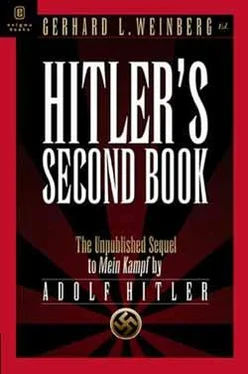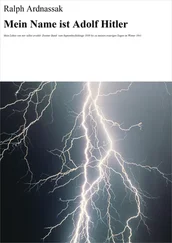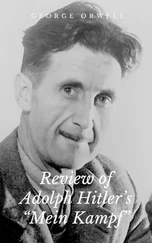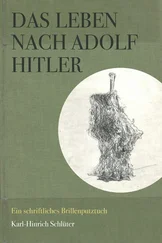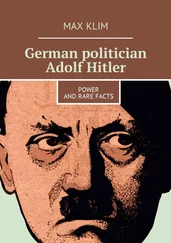The photo accompanies Flynn’s article. At that time it fell into the hands of the Russian Ambassador Bakhmateff, who had it enlarged and sent it to London, where it was published in the newspapers under the caption, The Dignified Ambassador, and it rendered a capital service to Allied propaganda.
This is what the München Latest News writes now. The man thus characterised, however, was a typical representative of German foreign policy before the War, just as he is also the typical representative of the German foreign policy of the Republic. This fellow, who would have been sentenced to hanging by a political tribunal in any other State, is the German representative at the League Of Nations in Geneva.
These men bear the guilt and the responsibility for Germany’s collapse, and, therefore, also for the loss of the Southern Tyrol. And with them the guilt falls on all parties and men who either caused such conditions, or covered them up, or also tacitly countenanced them or did not fight against them in the sharpest manner.
The men, however, who today brazenly try to deceive public opinion anew, and would like to aver that others are guilty of the loss of the Southern Tyrol, must first give a detailed accounting of what they have done for its preservation.
As for my person, at any rate, I can proudly declare that, since the time that I became a man, I have always been for the strengthening of my Folk. And when the War came, I fought on the German Western Front for four and a half years, and since its end I have been fighting against the corrupt creatures whom Germany can thank for this disaster. Since that time I have entered into no compromise with the betrayers of the German Fatherland, either in domestic or foreign policy matters, but immovably proclaim their destruction one day as the aim of my life’s work, and the mission of the National Socialist Movement.
I can all the more calmly endure the yelping of the cowardly bourgeois curs as well as that of the Patriotic Leaguers, as I know the average poltroon of these creatures, for me unspeakably contemptible, all too well. That they also know me is the reason for their hue and cry.
As a National Socialist, I see in Italy to begin with the first possible ally of Germany who can step out of the camp of the old coalition of enemies, without this alliance signifying an immediate war for Germany for which we are not equipped militarily.
According to my conviction, this alliance will be of great benefit to Germany and Italy alike. Even if its direct benefit should ultimately no longer exist, it will never become detrimental, as long as both nations represent their interests in the highest sense of the word. As long as Germany views the maintenance of the freedom and independence of our Folk as the supreme aim of her foreign policy and wants to secure this Folk the prerequisite for its daily life, for so long will its foreign policy thinking be determined by our Folk’s territorial need. And for so long will we not be able to have any internal or external inducement to fall into enmity with a State which does not in the least stand obstructively in our way.
And as long as Italy wants to serve her real vital needs as a truly national State, for just so long will she, likewise attending to her territorial needs, have to base her political thought and action on the enlargement of Italian soil. The more proud and independent, the more national the Italian Folk becomes, the less will it in its development ever come into conflict with Germany.
The areas of interest of these two countries, in a most fortunate way, lie so widely apart from each other that there are no natural areas of irritation.
A national conscious Germany and an equally proud Italy will also ultimately be able to close the wounds left behind by the World War in the understanding of their friendship based on their frank and mutual community of interests.
Southern Tyrol will thus some day have to fulfil a lofty mission in the service of both peoples. If the Italians and the Germans of this territory, once filled with a responsibility for their own Folkdom, perceive and understand the great tasks that Italy and Germany have to solve, the petty disputes of the day will recede vis-à-vis the higher mission of building a bridge of frank, reciprocal understanding on the former borders of Germany and Italy.
I know that, under the current regimes in Germany, this is as exactly as impossible as it would be under a non Fascist regime in Italy. For the forces which determine German policy today do not desire any German resurgence, but our destruction. They likewise want the destruction of the presentday Italian Fascist State, and therefore will leave nothing untried in order to sink both nations into hate and hostility. France will seize upon any such manifestation, be it only an act of thoughtlessness, and use it to her own advantage with a thousand joys.
Only a National Socialist Germany will find the way to a final understanding with a Fascist Italy, and finally eliminate the danger of war between the two Folks. For this old Europe was always a territory that was dominated by political systems, and this will not be otherwise at least for the humanly predictable future.
General European democracy will either be replaced by a system of Jewish Marxist Bolshevism, to which all States will succumb one after the other, or by a system of free and unlinked national States, who, in the free play of forces, will set their stamp on Europe in accordance with the number and importance of their specific Folkdom.
It is also not good for Fascism to exist isolated in Europe as an idea. Either the world of ideas from which it stems is generalised, or Italy will one day again succumb to the general ideas of another Europe.
Thus, if we submit Germany’s foreign policy possibilities to a closer examination, only two States remain in Europe as possible valuable allies for the future: Italy and England. Italy’s relation to England itself is already a good one today, and, for reasons which I have discussed in another passage, will hardly be clouded in the immediate future. This, too, has nothing to do with mutual sympathies, but rests, on the Italian side above all, on a rational appraisal of the actual power relations. Thus an aversion to a boundless and unlimited French hegemony in Europe is common to both States. For Italy: because her most vital European interests are threatened; for England: because an overpowerful France in Europe can inflict a new threat on England’s presentday naval and world supremacy which in itself is no longer completely unquestionable.
That already today probably Spain and Hungary are also to be reckoned as belonging to this community of interests, even if only tacitly, lies grounded in Spain’s aversion to French colonial activity in North Africa, as well as in Hungary’s hostility to Yugoslavia, which is at the same time supported by France.
If Germany would succeed in taking part in a new State coalition in Europe, which either must lead to a shift of emphasis in the League Of Nations itself, or allow decisive power factors altogether outside the League Of Nations to develop, then the first domestic political prerequisite for a later active foreign policy would be realisable. The weaponlessness imposed on us by the Versailles treaty and thus our practical defencelessness could come to an end, albeit slowly. This is possible only if the coalition of victors itself quarrels over this question, but never, however, in an alliance with Russia, let alone in a union with other so called oppressed nations, against the front of the coalition of the former victor States that encircle us.
Then in the far future it may be possible to think of a new association of nations, consisting of individual States with a high national value, which could then stand up to the threatening overwhelming of the world by the American Union. For it seems to me that the existence of English world rule inflicts less hardships on presentday nations than the emergence of an American world rule.
Читать дальше
